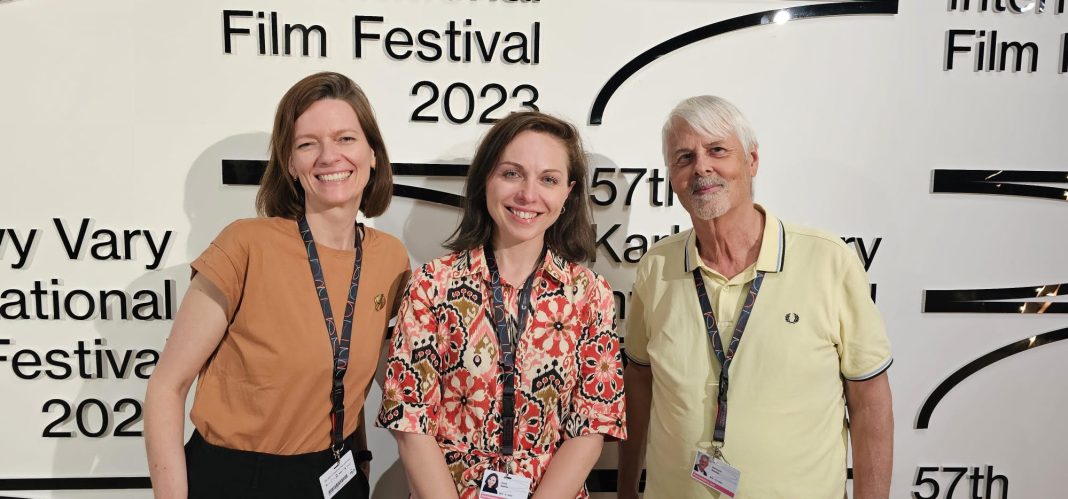The Karlovy Vary International Film Festival (KVIFF) is renowned for showcasing outstanding cinematic works from around the world. In its 2023 edition, one film stood out among the rest, capturing the attention of the Ecumenical Jury with its gripping narrative and exceptional performances. “Blaga’s Lessons”, directed by Stephan Komandarev, from Bulgaria and Germany, took home the prestigious Prize of the Ecumenical Jury. This article explores the motivations behind this well-deserved accolade and delves into the profound themes depicted in the film.
“Blaga’s Lessons” tells the story of a 70-year-old widow named Blaga, who finds herself entangled in a web of financial desperation and moral ambiguity. After falling victim to a telephone scam, Blaga is left financially destitute, unable to afford a proper tomb for her recently deceased husband and herself. Faced with seemingly insurmountable circumstances, she takes matters into her own hands, resorting to criminal actions to seek retribution for the hardships she has endured.
The film captivated the Ecumenical Jury by masterfully exploring the delicate balance between individual responsibility and societal norms. Blaga’s journey resonates deeply with the struggles faced by older people in post-communist or market-economy-capitalist Bulgaria. Through her character, the film sheds light on the complexities of survival in a society plagued by corruption, exploitation, and a constant fight for existence.
Blaga’s actions, while morally questionable, evoke a sense of empathy and invite the audience to question their own ethical boundaries. The film’s strength lies in its ability to make viewers grapple with the uncomfortable notion that they, too, might make similar choices if pushed to the brink. Blaga’s unwavering commitment to her strong beliefs, despite the consequences, adds depth and complexity to her character, further accentuating the plight of individuals trapped in an unforgiving world.
Religion also plays a significant role in the narrative, as Blaga’s actions are motivated by a fear for her husband’s salvation. This exploration of religiously driven convictions adds yet another layer to the film’s social commentary, illustrating the challenges faced by individuals who intertwine spirituality with their daily struggles.
The film’s success can be attributed not only to its compelling storyline but also to the exceptional performance by lead actress Eli Skorcheva. Skorcheva’s portrayal of Blaga is nothing short of outstanding, capturing the essence of a strong-willed woman torn between her principles and the harsh realities of life. Her nuanced performance allows the audience to understand and relate to Blaga’s complex emotions, despite her morally questionable actions. Director Stephan Komandarev’s skillful storytelling and evocative cinematography further elevate the film’s impact. His deft direction creates an immersive experience that amplifies the tension and emotional resonance of the narrative, keeping viewers engaged until the very last minute.
Through the lens of Blaga’s journey, the film offers a critical reflection on the challenges of navigating a society plagued by corruption, exploitation, and the erosion of trust. By exploring the delicate relationship between individual responsibility and social norms, “Blaga’s Lessons” compels viewers to examine their own ethical boundaries, fostering a greater understanding of the human condition.
The jury also gave a commendation to Citizen Saint by Tinatin Kajrishvili (Georgia, France, Bulgaria, 2023), which tells the story of a village in a barren Georgian mining region worships which a heavily weathered saint that suddenly it seems to have come alive. Miracles happen, the lame walk, lost miners appear to their relatives and every Bible-savvy viewer believes they have seen or heard all of this before. “But this film is not simply a retelling of the New Testament. Rather, it raises an essential and quite self-critical question of Christian religion: why do we worship the dead, immobile, interchangeable instead of the living? Do we want to live or survive?”, says the jury. For this and for its exceptional visual, aesthetic and musical design, the Ecumenical Jury awarded their Special Mention to “Citizen Saint” by Tinatin Kajrishvili.
This year’s jury was composed of Hana Ducho (Czech Republic), Anna Grebe (Germany), and Hermann Kocher (Switzerland).


